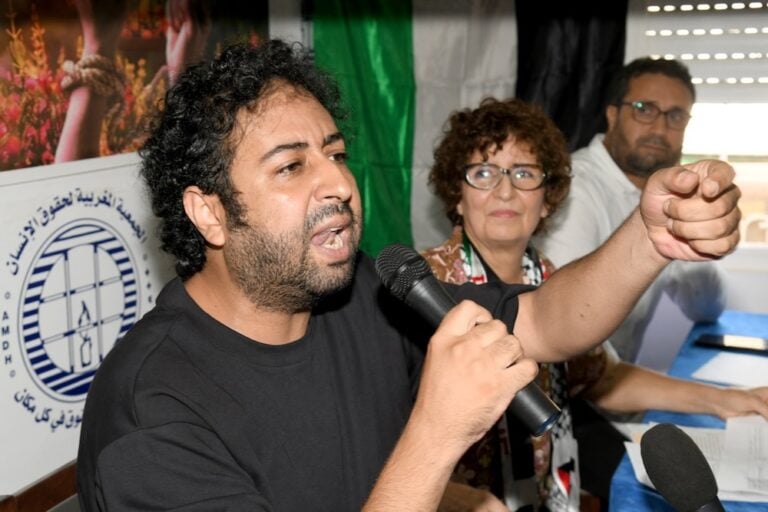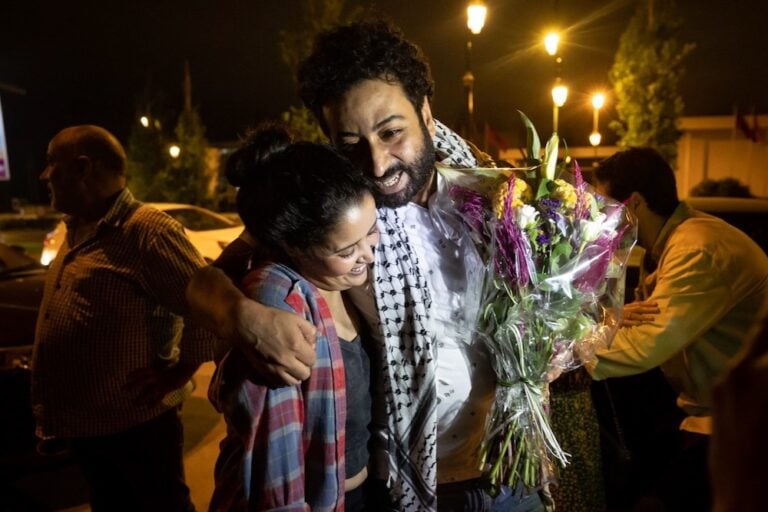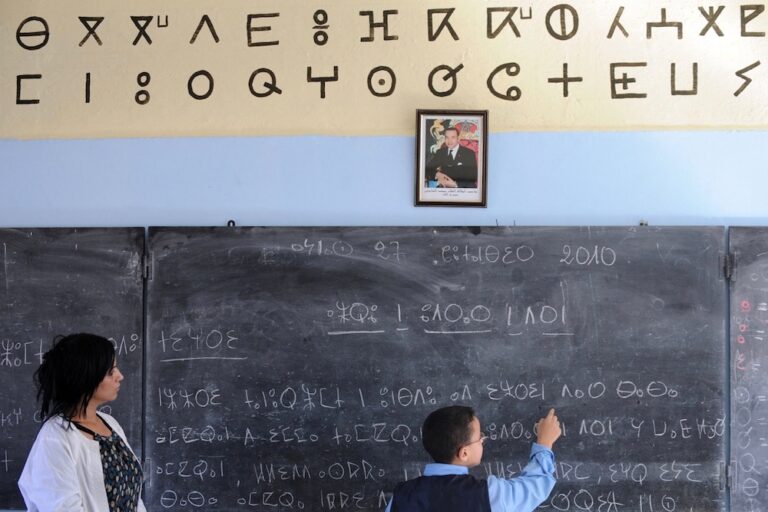A court in Guelmim sentenced El Bachir Hazzam and Abdullah Boukfou for circulating information about a heavy-handed crackdown on student protests.
(RSF/IFEX) – Reporters Without Borders condemns the government’s persecution of bloggers in the southwest of the country since the start of December 2009. On 15 December, a court in Guelmim imposed jail sentences on a blogger and an Internet café owner for circulating information about a heavy-handed crackdown on student protests in the nearby village of Taghjijt (200 km south of Agadir) on 1 December.
The blogger, El Bachir Hazzam, was given a four-month sentence on a charge of “spreading false information about human rights that undermined the kingdom’s image.” Internet café owner Abdullah Boukfou was given a 12-month sentence on a charge of “possession of publications inciting racial hatred.”
The court also passed six-month sentences on three of the protestors on charges of using violence, disturbing public order and insulting officials in the course of their duty, and imposed fines of 500 dirhams (approx. US$65) on all five defendants. The defendants, who were already in custody, began serving their sentences at once.
“In October, the government unveiled a plan aimed at improving Internet access and integrating Morocco into the information society and digital economy, but these convictions mark a step backwards and show that the right to online free expression does not extend to those who criticise the authorities,” Reporters Without Borders said. “We are very disturbed by the frequency with which bloggers have been arrested in the past two years.”
The press freedom organisation added: “Hazzam and Boukfou did nothing illegal. Hazzam just posted an already-published release about the crackdown on the student demonstrations in Taghjijt, while Boukfou just distributed reports and photos about the events. There was no evidence to support the charge of inciting racial hatred. Instead of jailing these men, the authorities should be investigating the abuses committed by the local security forces and the role of the village chief during the demonstrations.”
Hazzam was arrested on 7 December, three days after posting the press release on his blog ( http://hazzam82.maktoobblog.com ). Issued by the students, the release condemned the arrests and the disproportionate force used by the police and local authorities to disperse the demonstration. Hazzam was also questioned about an article he posted during the September 2007 legislative elections entitled “Electoral promises: truth or fiction”.
Hazzam has said he will appeal. The Arabic Network for Human Rights Information (ANHRI) has meanwhile launched a campaign for his release ( http://www.anhri.net/press/2009/pr1214.shtml ) and a support group has been formed on Facebook.
Boukfou was arrested in his Internet café a few days after the demonstrations, when the authorities allegedly found press releases by the Amazigh (Berber) organisation Al Haraka on his flash drive. He was reportedly mistreated during interrogation. Some Internet cafés were closed down temporarily while others were placed under close surveillance to prevent the distribution of photos and information, the ANRHI reported.
When the demonstration got under way in Taghjijt on 1 December to press for better transport, housing and other social demands, the local village chief ordered the arrests of three students. This triggered an even larger demonstration in support of the detainees that was dispersed violently by the security forces. More arrests followed over the next few days, as the authorities sent reinforcements to Taghjijt and imposed a curfew on the village.
Boubaker Al-Yadib, an activist and blogger, is currently being sought by the security forces because of his coverage of the events. Abdelaziz Salami, another blogger who is a member of the anti-neoliberal network Attac, was given a six-month jail sentence for participating in the protests.
Association of Moroccan Bloggers president Said Benjabli said the jail sentences were “part of a drive to reinforce control of independent media that cover violations by the security forces and government officials.”
Benjabli added: “The authorities are exploiting the impact of the tragic terrorist attacks to go back to their old methods of abduction and sham trials, violating defendants’ basic rights and crushing opposition activists.”
Several bloggers have been arrested in the past two years in Morocco for expressing their views freely online. They include Hassan Barhoum, a blogger and journalist known for combating corruption, who was arrested in February and was given a six-month jail sentence for filing a complaint in the northern city of Tétouan accusing a local prosecutor of corruption. He was freed during the summer.
Blogger Mohammed Erraji was sentenced to two years in prison and a fine of 500 euros in September 2008 for “disrespect towards the King.” He was released a few days later after his conviction had been overturned on the grounds of procedural irregularities.
Fouad Mourtada, a computer engineer, was arrested in February 2008 and sentenced to three years in prison and a fine of about 1,000 euros for creating a false Facebook profile in the name of King Mohammed’s younger brother. He was given a royal pardon the following month.


